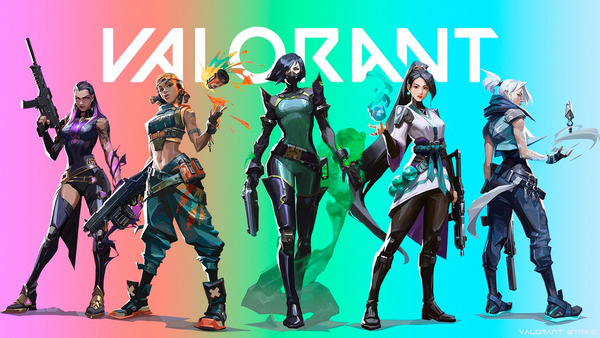Call of Duty (CoD) is one of the most iconic and influential video game franchises in the world. Developed primarily by Infinity Ward, Treyarch, and Sledgehammer Games, and published by Activision, the series has spanned over two decades, transforming from a grounded World War II shooter into a global entertainment phenomenon featuring futuristic combat, battle royale modes, and esports dominance.
Since its launch in 2003, Call of Duty has continuously reinvented itself. With over 400 million copies sold, it's not just a video game — it's a cultural powerhouse that has defined a generation of players.
1. The Origins: World War II Realism (2003–2006)
Call of Duty began as a PC-based World War II shooter, competing with titles like Medal of Honor. The early games, including Call of Duty (2003), Call of Duty 2, and Call of Duty 3, focused on immersive historical campaigns and squad-based combat.
These titles were praised for their authenticity, cinematic presentation, and intense firefights. They set the tone for what would become one of the most polished and widely respected shooter experiences in gaming.
The franchise's early success laid the groundwork for its massive expansion onto consoles and other genres.
2. Modern Warfare Revolution (2007–2011)
In 2007, Call of Duty 4: Modern Warfare changed everything. It introduced a modern-day setting, gripping narrative, and revolutionary multiplayer systems with:
-
Custom loadouts
-
Perks and killstreaks
-
Level progression and prestige systems
Modern Warfare’s fast-paced multiplayer became the gold standard for online shooters. The momentum continued with Modern Warfare 2, Modern Warfare 3, and Black Ops, which added Cold War-era espionage and deeper storylines.
This era marked Call of Duty’s rise to mainstream fame — not just as a game, but as a pop-culture giant.
3. Black Ops and Psychological Warfare (2010–2015)
The Black Ops series, developed by Treyarch, took Call of Duty in a new direction. Focusing on covert operations, conspiracies, and psychological themes, Black Ops introduced characters like Alex Mason, Frank Woods, and the mysterious Numbers storyline.
Highlights of this period include:
-
Zombies mode, which gained its own cult following
-
Experimental campaigns with multiple endings
-
Deeper lore and character arcs
Black Ops solidified Call of Duty’s reputation for storytelling while continuing to dominate the multiplayer scene.
4. Innovation and Futuristic Combat (2013–2018)
As the series expanded, so did its ambition. Titles like Advanced Warfare, Infinite Warfare, and Black Ops III introduced:
-
Jetpacks and wall-running
-
Sci-fi weaponry and exosuits
-
Space-based missions and drone warfare
While some fans appreciated the innovation, others felt the series strayed too far from its grounded roots. Nevertheless, these games experimented with new gameplay mechanics, visual fidelity, and campaign styles.
This era also introduced supply drops and live-service monetization models, which had mixed reception.
5. Return to Roots: WWII and Reboots (2017–2019)
Responding to fan demand, Activision brought the series back to basics with:
-
Call of Duty: WWII (2017) — a return to the original setting
-
Modern Warfare (2019) — a reboot of the beloved classic
Modern Warfare (2019) revitalized the franchise with a gritty campaign, new graphics engine, and the introduction of Warzone, a free-to-play battle royale that would explode in popularity.
These entries reestablished Call of Duty’s relevance in a saturated shooter market.
6. Warzone and the Rise of Battle Royale (2020–Present)
Call of Duty: Warzone, released in March 2020, brought the franchise to the forefront of the battle royale genre. Free-to-play and cross-platform, Warzone reached over 100 million players within its first year.
Key features include:
-
150-player matches on massive maps like Verdansk and Caldera
-
Unique Gulag respawn system
-
Loadout customization and buy stations
Warzone transformed how people accessed and played Call of Duty, offering fast-paced action with a tactical edge. It continues to evolve with regular updates, new maps, and seasonal content.
7. Multiplayer Evolution and Competitive Play
Call of Duty has consistently offered one of the most competitive multiplayer ecosystems in gaming. Core features across generations include:
-
Quick TTK (Time to Kill)
-
Responsive shooting mechanics
-
Weapon camos, attachments, and prestige systems
The franchise has also cultivated a vibrant esports scene through the Call of Duty League (CDL), which features professional teams, seasonal tournaments, and major prize pools.
Casual and hardcore players alike enjoy a range of multiplayer experiences — from classic 6v6 to large-scale objective-based modes.
8. Zombies Mode: From Bonus to Fan Favorite
Originally a hidden extra in World at War, Zombies mode has become a staple in Treyarch-led entries. Known for its round-based survival gameplay, Zombies includes:
-
Elaborate maps with secrets and Easter eggs
-
Perk machines and power-ups
-
Unique storylines like Aether and Dark Aether
Zombies mode blends horror, strategy, and fast reflexes into a completely different Call of Duty experience — one that has earned its own fanbase over time.
9. Graphics, Realism, and Audio Fidelity
Call of Duty continually pushes the envelope in visual and audio realism. Modern entries like MWII (2022) and Black Ops Cold War utilize:
-
Photogrammetry and real-time lighting
-
Highly detailed character models and environments
-
Realistic weapon recoil and sound design
Combined with cinematic storytelling and immersive audio, the franchise remains one of the most polished in terms of presentation. Whether it's a stealth mission in an embassy or a firefight in a war-torn city, each moment feels intense and believable.
10. The Future: Innovation Meets Legacy
Call of Duty’s future looks both familiar and bold. With the annual release model now supplemented by live-service elements, players can expect:
-
Continued expansion of Warzone and mobile offerings
-
More reboots and nostalgic nods to classic characters
-
Cross-progression and tighter integration between modes
Activision has also announced a long-term roadmap with Modern Warfare III (2023) and other projects in development. The series now spans console, PC, and mobile platforms, making it more accessible than ever before.
Conclusion
Call of Duty has evolved from a historical war shooter to a multi-platform, multi-genre titan of the gaming industry. With 20+ mainline entries, award-winning campaigns, beloved multiplayer modes, and its revolutionary take on battle royale, it remains at the center of shooter culture.
Whether you're reliving the emotional highs of a campaign, grinding camo challenges, surviving Zombies, or dominating in Warzone, Call of Duty offers something for every type of player. Its ability to adapt while honoring its legacy is what makes it not just a game — but a gaming institution.



























